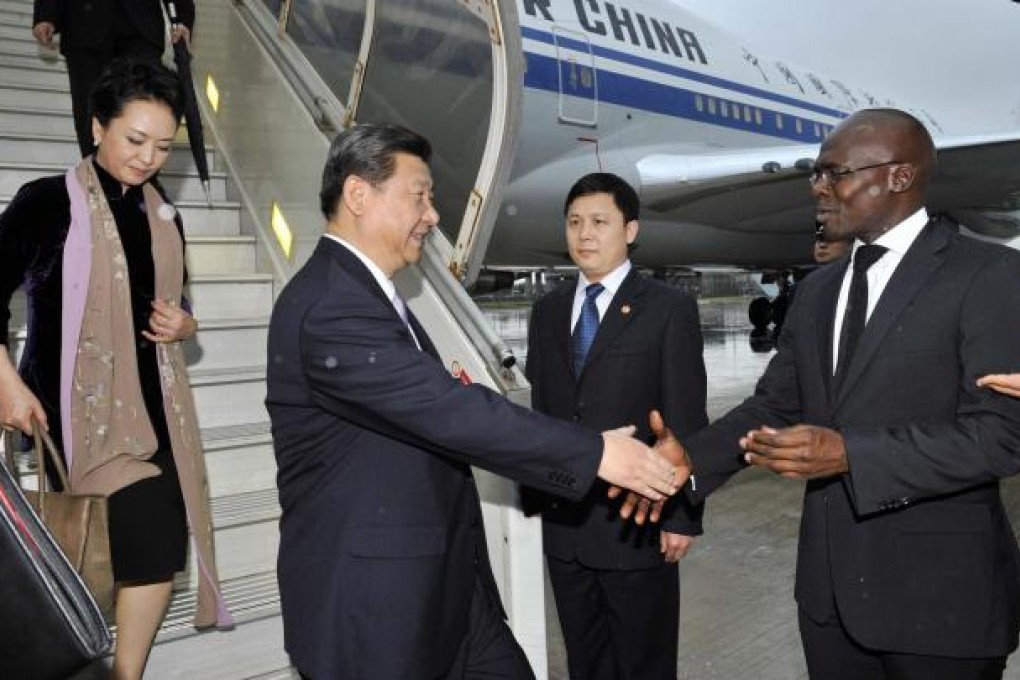Rubbery numbers still add up to big role in Africa
Exact figures after years of deals can be disputed but China's continued spending in the continent points to a major economic relationship

Although there is debate on whether China is Africa's top investor, analysts agree President Xi Jinping's visit to the continent underscores China's continued role as a major economic player there.

Mergermarket also ranked China first in investment in Africa last year - with a total of US$2.5 billion - and in 2011, with US$3.44 billion. But, UN data put China only fourth on the list for 2011, behind the United States, France and Malaysia.
Anthony Desir, a partner of Strategic African Mineral Investment Fund, an African resource consultancy, is sceptical of those figures. "The Chinese and Australians are the leading dealmakers," Desir said. Investors from the Indian subcontinent are the next big group, accounting for 30 per cent of the transactions. "We have not seen any significant Malaysian presence in the transaction flow," he said.
According to Desir's calculations, the cumulative Chinese investment in sub-Saharan Africa totals US$220 billion.
His view of China's investment is backed up by Dane Chamorro, Asia-Pacific director of British consultancy Control Risks. "Even if China was not No1, the fact remains that for the last decade it has ranked near the top and has been willing to make investments in infrastructure in countries like the Democratic Republic of Congo that have trouble attracting investment," Chamorro said.
Lizzie Parsons, a senior adviser at British non-governmental organisation Global Witness, said a lack of transparency remained a big problem in getting exact figures for Chinese and non-Chinese investment in Africa. "In travelling to Africa so soon into his presidency, Xi has demonstrated the importance of the continent to China," Parsons said.